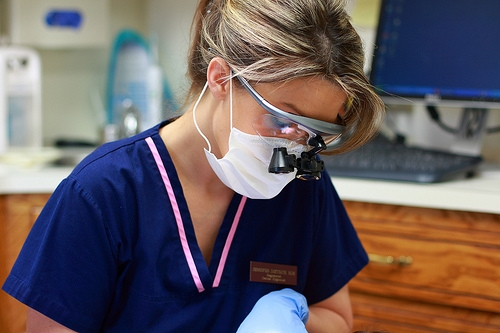I drink a lot of coffee. Could it be hurting my smile?
June 4th, 2025

At Sandra Martin Family Dentistry, we know most of our patients enjoy a cup of coffee or two throughout the day. But what many of you don’t know is that coffee can be especially tough on your teeth because tannic acid (the substance that makes the dark color) etches into the pits and grooves of tooth enamel, staining your pearly whites and being generally detrimental to your smile.
Coffee is one of the most popular beverages in the world, with more than 50 percent of people drinking a cup daily. Other foods and drinks such as wine, chocolate-flavored beverages, and soft drinks can all cause tooth enamel discolorations. A hot cup of Joe, however, goes one step farther: extreme temperature changes in your mouth can cause teeth to expand and contract. This allows stains to penetrate deep into the micro-cracks of your tooth enamel.
Additionally, caffeine is considered a diuretic, which means it causes the body to lose fluids. So when you enjoy coffee or any kind of caffeinated beverage, it slows the production of saliva and causes dry mouth, which can potentially lead to bad breath and even tooth decay.
If you just can't make it through the day without a cup of java, we encourage you to consider these tips to help make sure your teeth stay in tip-top shape:
- Drink a glass of water with your coffee or rinse with a glass of water after every cup. Not only does it help neutralize and rinse away the acid left behind from the coffee, but it also helps replenish fluids drawn out of your body by caffeine.
- Chew gum after you drink coffee. Chewing gum will help keep your saliva production up and prevent dry mouth.
- Enjoy your beverage with a straw so that tannins don’t make contact with your front upper and lower teeth.
- Switch to decaf. Each cup of regular coffee you drink has an average of 110 milligrams of caffeine. Decaf has the same great taste with only two to 12 milligrams of caffeine.
Sandra Martin and our team also invite you to visit our convenient Wake Forrest, North Carolina office for whitening options. We can help bleach your teeth with proven and professional products. To learn more about whitening options available at Sandra Martin Family Dentistry, please give us a call!




